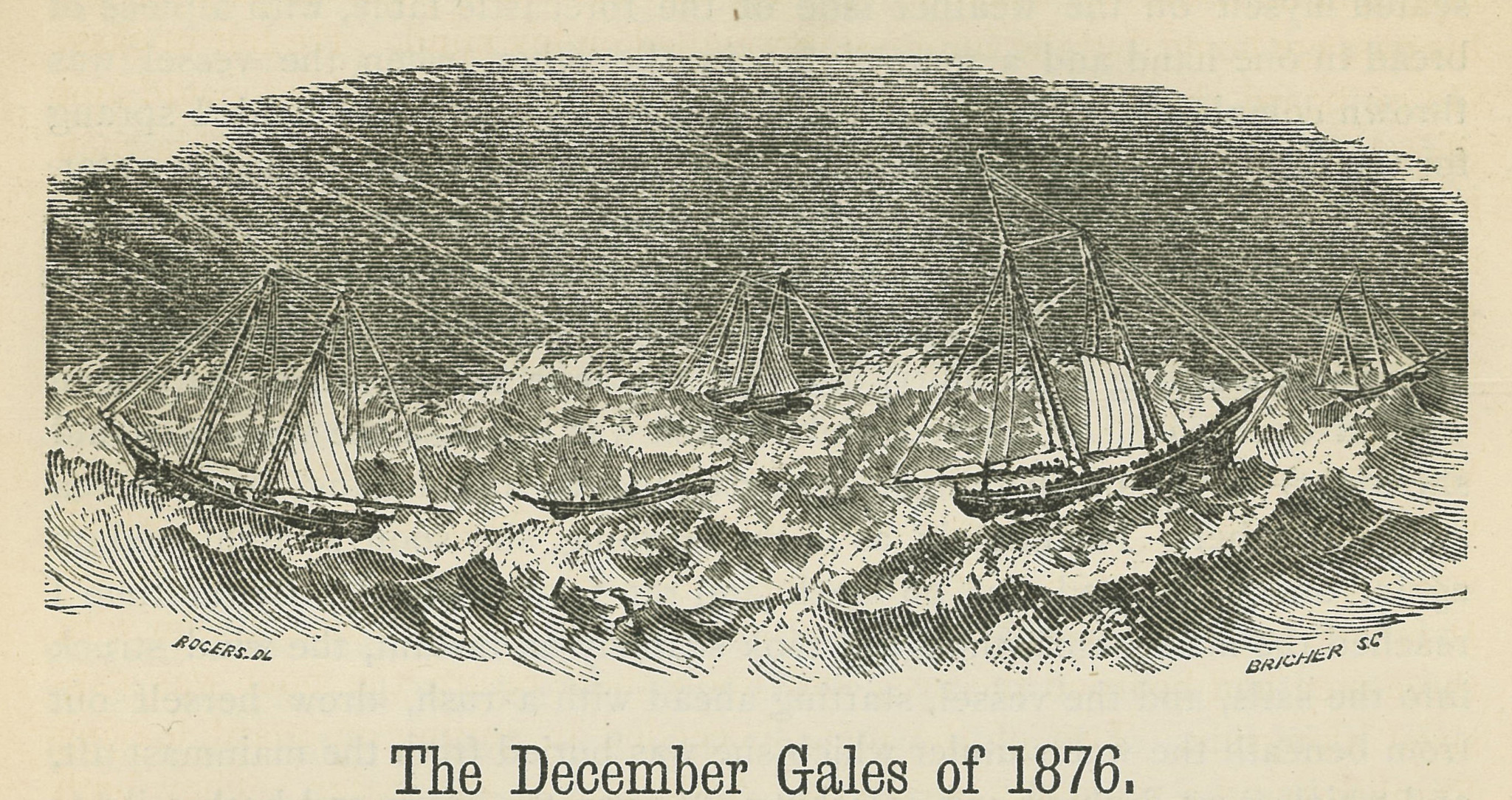It is midwinter, a time when Georges Bank and other areas of the North Atlantic have a well-earned reputation for unruly behavior. After this bomb cyclone passes over the Northwest Atlantic, the next few days are expected to bring winds out of the west at 30 to 40 knots with maybe 20-foot seas. It could be much worse; I’m thinking of the North Atlantic gales of Dec. 9 and 16 in the year 1876.
Fishermen returning to Gloucester reported that “in all their experiences, nothing was ever encountered that would compare with the fierceness of the winds and the waves,” according to “The Fishermen’s Own Book,” published in Gloucester by the Proctor Brothers in 1882. The “gales swallowed up ten vessels, and ninety-eight men were buried beneath the treacherous billows.”
In one case, the schooner Ruth Groves was nearly capsized by a big sea. Her foremast was carried away as was the mainsail, main boom and main gaff. Two of the crew were swept overboard and lost.
Another schooner, the Howard, was anchored in 60 fathoms on Dec. 10 when the wind turned west-northwest, blowing extremely hard and pushing before it “a fearful sea… I think the worst I ever saw,” said the Howard’s captain, J.W. Collins, who would later advocate for a safer design than the clipper schooners, whose sea-keeping characteristics were a major reason for the loss of so many boats and men.
At one point in the December storm, a large sea boarded the Howard, pulling George Miller, the man on watch, over the stern. It “took the unsuspecting man into the foaming and seething waters astern,” wrote Collins. “More than a hundred feet astern and drifting with the current, every moment still further away, we saw the poor fellow rise to the surface, struggle for a few seconds, and then, buried beneath a huge wave, disappear for ever from mortal sight, while the shrieking and howling winds sounded a requiem over his untimely grave.”
The Howard arrived back in Gloucester on the 23rd, with a stop in Liverpool, Nova Scotia, made necessary after a ball of lighting burst between the Howard’s masts, paralyzing Collins on the right side, as he and the Howard’s crew were trying to stabilize the schooner between snow squalls.







